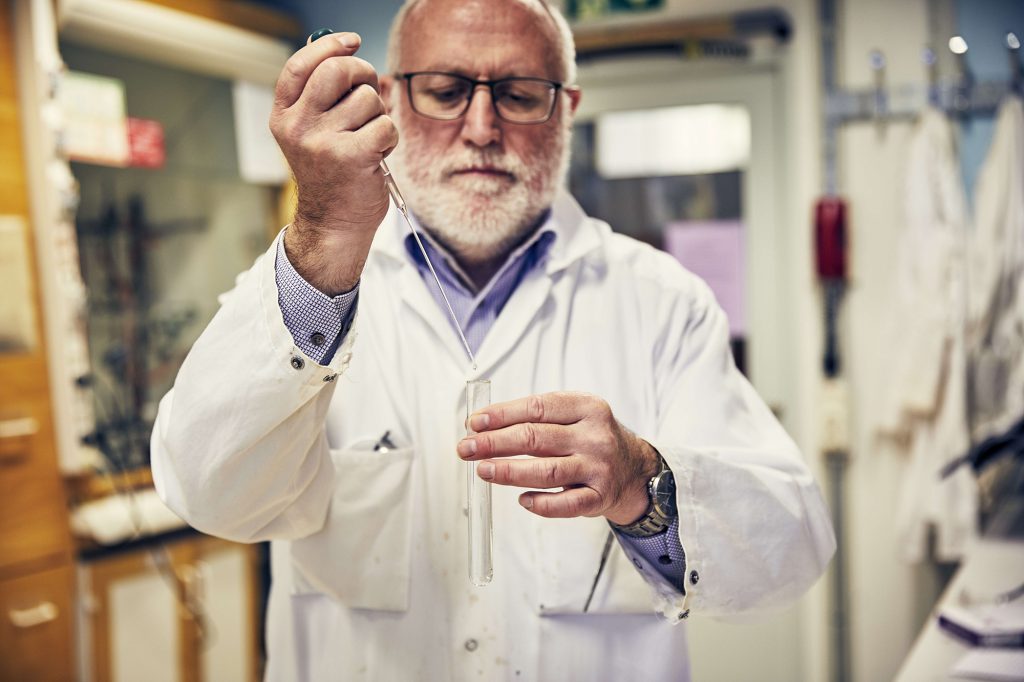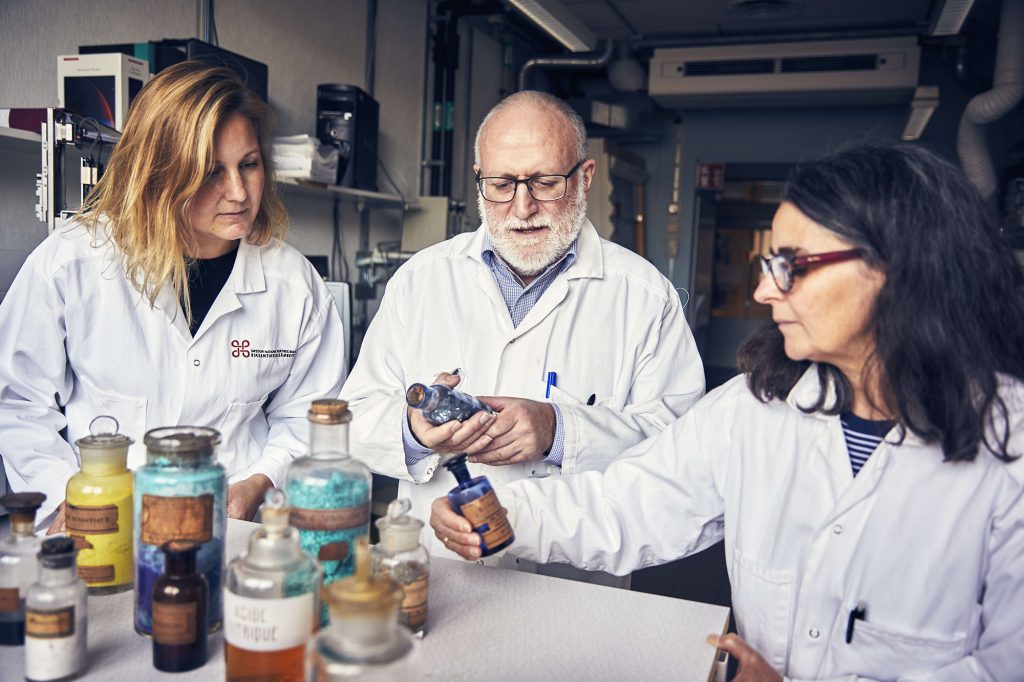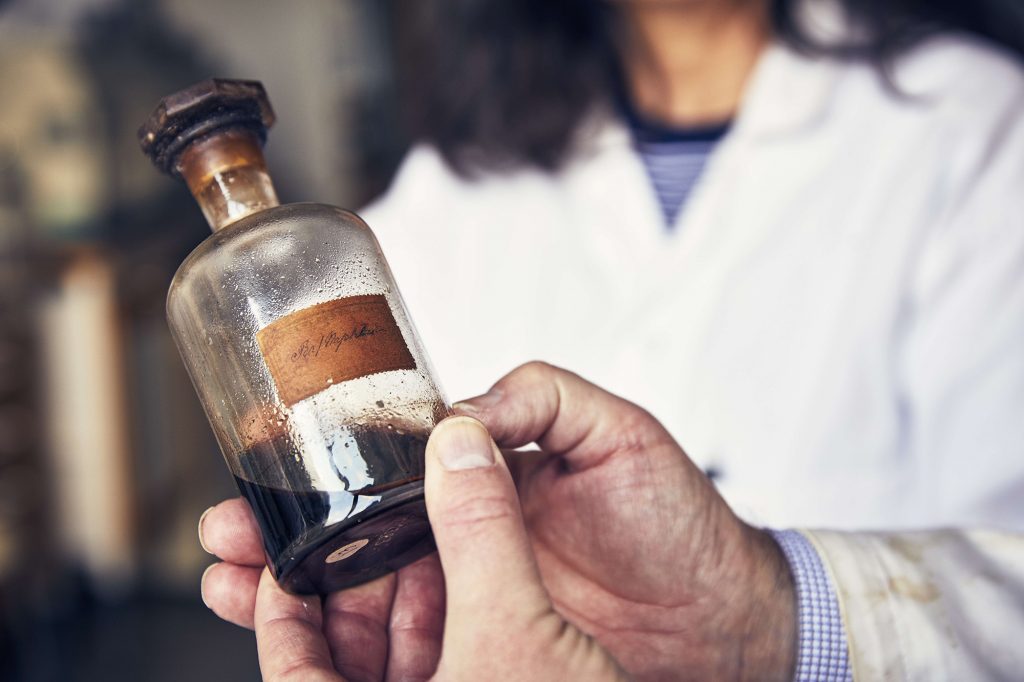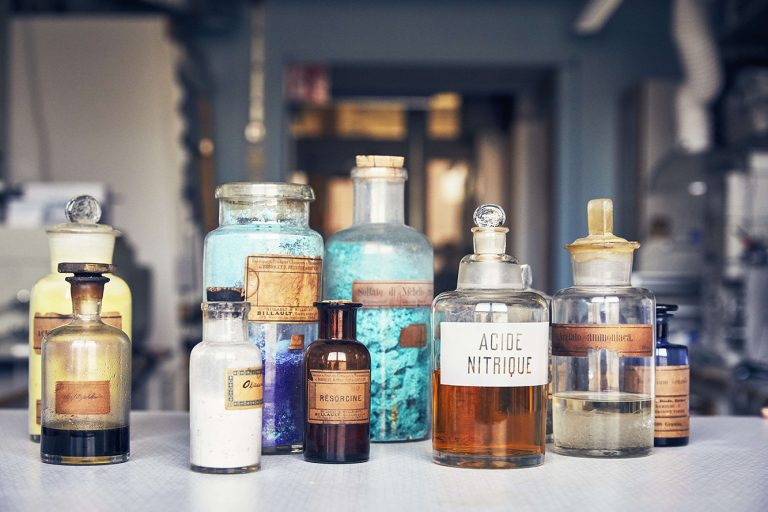When Alfred Nobel died in 1896, he had laboratories in San Remo, Paris, and Björkborn Manor in Karlskoga. At the time of his death, some forty bottles were shipped to Stockholm and stored for many years in the basement of the Nobel Foundation. After the Second World War, they were moved to the National Museum of Science and Technology, where they remained until the 1980s, when they were put on display in Alfred Nobel’s reconstructed laboratory at the newly opened Nobel Museum in Karlskoga.
In the spring of 2020, the bottles were moved to Uppsala University to be analysed. Despite having been around for over a century, the bottles were well preserved, and many had clear labels that were typical of their day. Sara Norrehed, a chemist at the Swedish National Heritage Board, has been working on the project. She says the greatest benefit of these analyses is that we now have answers to the question of what’s been hiding in those bottles.
“There is no longer any reason for anyone to be uncertain about what the bottles contain,” says Norrehed. “By analysing the liquids and powders and establishing a chemical registry of the contents, the museum can determine the best way to store the bottles and how they can be safely handled and displayed for museum visitors in the future.”
The contents of the bottles were typical of the day and in many cases exactly what it said on the label. The analysis turned up heavy metals such as lead and chromium and other substances one might expect to find in a laboratory. Some of the bottles also contained substances that were used in the manufacture of dynamite.
“We were most surprised over how intact the contents of the bottles were. They were in very good condition in spite of how much time had passed.”
But all was not what it seemed. One jar with an Italian name on it suggested that the content was some form of antidote, but it turned out to be something else entirely. Some bottles also contained mixtures and potential traces of chemical reactions that Alfred Nobel or one of his colleagues had worked with.
“You’d really like to be able to talk to him and ask what he planned to use the contents of the bottles for,” says Sara Norrehed.
She says many museums need to take inventory of their collections of potentially dangerous objects, and she is very glad that the Nobel Prize Museum took the initiative for the project. If you have bottles of chemicals with unknown contents and you don’t undertake this kind of effort, there is a risk of valuable treasures being destroyed because it is difficult to know how to handle them in a museum environment. And in this case, of course, it’s not about just any bottles.
“Alfred Nobel is an important person in the history of science, and he’s going to continue to be in the future, considering the Nobel Prizes. That’s why it has been valuable to get clarity about exactly what he had in his bottles,” Norrehed concludes.
The final report from the project will be published in 2021.
For further information, please contact
press@nobelprize.org
-

Professor Adolf Gogoll from Uppsala University. Photo: Dan Lepp
-

Sara Norrehed, Swedish National Heritage Board, Professor Adolf Gogoll from Uppsala University and Margrit Wettstein, Nobel Prize Museum. © Nobel Prize Outreach. Photo: Dan Lepp
-

Alfred Nobel’s old bottles Photo: Dan Lepp
-
Professor Adolf Gogoll from Uppsala University. Photo: Dan Lepp
-
Sara Norrehed, Swedish National Heritage Board, Professor Adolf Gogoll from Uppsala University and Margrit Wettstein, Nobel Prize Museum. © Nobel Prize Outreach. Photo: Dan Lepp
-
Alfred Nobel’s old bottles Photo: Dan Lepp
